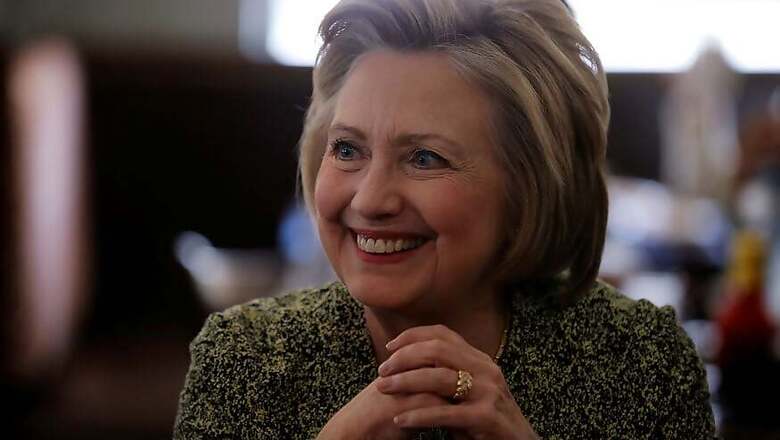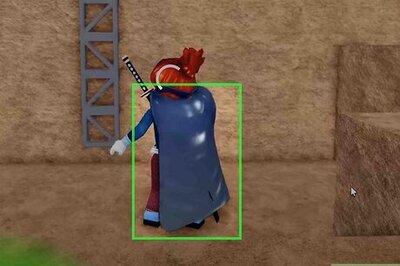
views
Washington: On March 14, 2012, at 4:44 am in Washington, Hillary Clinton's chief of staff received a CIA employee's email with the subject line: "URGENT -- From Dave Petraeus's Chief of Staff."
Cheryl Mills forwarded the message mentioning the spy agency's director less than an hour later to [email protected] -- the private email account of the then secretary of state, whose maiden name is Rodham: "HRC See b/l Calling you re this around 7:15 am."
The message is one of more than 30,000 emails and documents made public by the Department of State. It is also one of thousands of messages marked classified that are now at the heart of an official investigation, one which could endanger Clinton's White House dreams.
Should Clinton, on the cusp of winning the Democratic presidential nomination, ultimately be charged with mishandling classified data, she would find herself in the unprecedented position of campaigning for president while embroiled in a legal battle and under federal indictment.
The Central Intelligence Agency email belongs to a group of 65 messages classified as "secret" and which have been partially redacted.
The content of the initial CIA email was blacked out in the publicly released version, for reasons of national security.
Revelation of the emails, sent from and received by Clinton between 2009 and 2013, led the Federal Bureau of Investigation to launch a probe and begin questioning members of the inner circle of the woman who is now the likely Democratic standardbearer.
Mills and Huma Abedin, Clinton's long-time confidante, have already undergone questioning, while The Washington Post reports that Clinton herself will be questioned soon.
"No one has reached out to me yet, but last summer, I think last August, I made it clear I'm more than ready to talk to anybody anytime," Clinton said on Sunday.
"I have encouraged all of my assistants to be very forthcoming, and I hope that this is close to being wrapped up."
The FBI investigation, whose breadth has never been officially confirmed, is nearing its end.
Agents are poring over emails labeled "confidential" (the first level of classified data, affecting some 2,000 emails), "secret" (65 emails) and "top secret" (22 emails, entirely withheld) which were found on Clinton's private, non-government email server kept at her home in Chappaqua, New York.
The security of the server, currently in possession of federal agents, and its vulnerability to cyber hacking have been questioned, especially after Romanian hacker Marcel Lehel Lazar, nicknamed Guccifer and jailed in a US prison, told Fox News that he repeatedly breached the Clinton server, although he did not provide proof.
- Anti-Hillary slogans -
The law bars handling or transmitting classified information on an unsecure network because doing so could cause grave damage to national security.
But at the times the emails were sent and received by Clinton, they were not marked secret or confidential, she has insisted.
Federal law at the time did not forbid administration officials from conducting official business on personal accounts, although the practice was discouraged.
The classifications were made in hindsight and prior to public release after analysis by government officials.
The Clinton camp has contested the "over-classification" of some of the messages. One of them, related to North Korea and originally deemed "top secret," was finally downgraded to "secret" and a redacted version was released publicly.
Once completed, the FBI investigation will be presented to the Justice Department, which will render a decision on whether or not to proceed with criminal charges.
To date, investigators have found no evidence that Clinton knowingly broke the law, officials told CNN.
But in the midst of a heated presidential campaign, Republicans have relentlessly used the scandal as a cudgel to dent the Democratic frontrunner's reputation.
The fact that she apologized last September hardly slowed the flood of criticism, especially within the conservative orbit.
In Republican campaign rallies, a harsh slogan began appearing on T-shirts and buttons worn by anti-Clinton voters: "Hillary For Prison."
Trump, fuelling a narrative that Clinton is dishonest, has taken to calling her "Crooked Hillary" on the campaign trail.
"She shouldn't even be allowed to run," Trump told MSNBC last week.




















Comments
0 comment